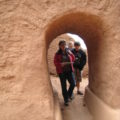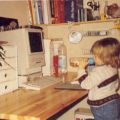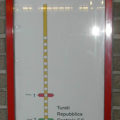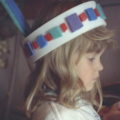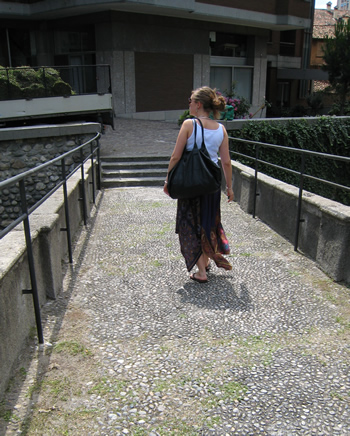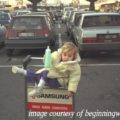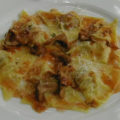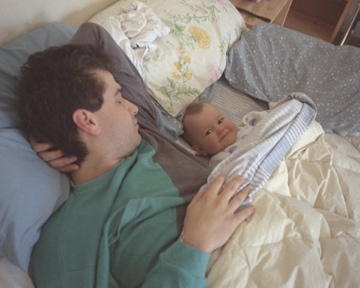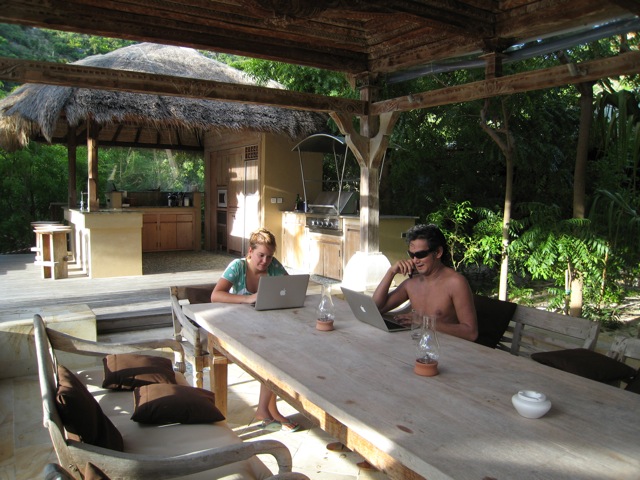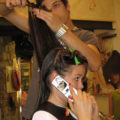I hear a lot in the US about work-life balance. The concept is increasingly at the forefront of consciousness as we all think hard about the roles we want to play in the world and in our own families. Most large corporations at least pay lip service to the notion that work-life balance is desirable for their employees, and many back up their fine words with benefits that are very much to the point.
It’s a topic that I have opinions on only in hindsight. I never planned my career, nor my home life. It all just seemed to happen, I made choices as they came along, and I haven’t reached the end of the story yet to know how it will all work out.
I think perhaps I’ve achieved work-life balance, or at least I’m on my way to achieving it, though not in the day-to-day fashion that most people imagine. My work and life are balancing over months and years.
If I had had to choose a time to have a child, there might never have been a “right” time. It would have meant an interruption to whatever I was doing professionally at the time, because I always knew that I would want to take care of my baby myself. I don’t claim that this is the right choice for everyone (for many mothers, it’s simply not a financial option), but I knew without thinking that it was right for me. If it had not been possible, I might have chosen not to have children at all.
I have come to the conclusion (many years after the fact) that I got pregnant at age 25 as a way to end conflict between myself and my then-fiance, Enrico, about my work. He was worried about my traveling, partly out of concerns for my safety in exotic countries (I did two consulting jobs in Africa), partly because he preferred to have me near him, and did not see how all my gallivanting was going to fit into “normal” married life. He’s also 6.5 years older than I am, and he was ready to be a father when we met. But I was excited about the work I was doing, and not about to give it up on his say-so. Irresistible force meets immovable object. Much conflict ensued.
So I “accidentally” got pregnant, then gave up my job and moved to New Haven to be with Enrico. I worked temp jobs (desktop publishing) until about two weeks before giving birth, when I was simply too enormous and uncomfortable to sit in an office chair all day. After Ross was born, the boss I’d been working for at Yale would have been delighted to have me back on any terms, including having the baby in the office with me all day, but we tried that and concluded it just would not work: a very young baby requires constant attention.
I was mostly at home with Ross until we moved to Italy, where she began full-time day care in early 1991, at about 18 months old. The job I eventually found started out as a regular office job, doing technical writing for a high-tech startup in Milan. Then the boss set up a US branch for his company and moved all the engineers to Silicon Valley. I had to work with them, so in early 1994 I began flying to California four times a year, for stretches of two to three weeks. In the summers, Enrico and Ross would join me and enjoy a month’s vacation in California while I worked.
Enrico was also spending at least a month out of each year in the US, collaborating on mathematical research with colleagues at various universities. During several such trips Ross and I joined him. I worked from wherever I could get an internet connection and put Ross in daycare, which had the added benefits of improving her English and giving her more exposure to American culture. Later, when she was in elementary school, we restricted our long family stays in the US to the summers; Ross and Enrico would vacation in California while I was working.
I quit my US-based job in 2001 (when Ross was 12) and began working entirely from our home in Milan. It turned out to be a boon that I was much more present during her adolescence than I had been earlier. Ross’ teenage years weren’t entirely smooth (whose are?), but the troubles she had were mostly with school. In every other arena she was level-headed and generally trustworthy. Perhaps having her mother close, both physically and emotionally, contributed to that.
Very unusually for an Italian, Ross left home at 18 to go to boarding school in India, which meant that I could leave home as well. Which, after years of being underemployed, underpaid, overcommuted, and exploited in the lousy Italian job market, I was ready to do. So now I’m back to concentrating on my career. We’ll see how the next 20 years go.

